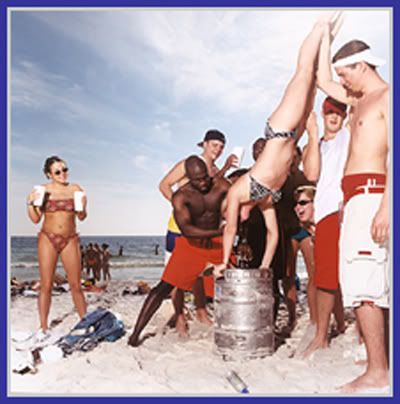
The Clarion is a huge fan of
wordsmithery. A word itself, that our publishing software does not approve of, despite
Merriam-Webster's
citation as far back as 1873. As a fan of such craftsmanship, we love
Urban Dictionary.
Urban Dictionary is a dictionary composed of reader contributed definitions. The definitions are all accompanied by a thumbs up, thumbs down rating, and listed from most to least approved. Anyone can submit a definition with accompanying examples. Submissions are not paid. So rather than being edited down to one correct, or even several popular versions of any given definition, queriers looking up words see all given definitions ever posited by posters.
The Clarion is addicted to voting on other folks' definitions. Goodness, could anything make the people in my immediate family happier than a dictionary where you can vote whether or not you agree with the definition, as well as submit your own definitions. Sweetness and joy.
At the Clarion we delight in
wordsmithery (see Urban Dictionary's definition of
wordsmithery here. We love words, meaning and feeling, communication is our lifeblood. We hope we have explicated our favorite new tool, the
Urban Dictionary for you. Now we want to throw some fresh word fuel on the fire.
Three words for your pleasure and warmth.
Scenester. Pretendica. Fatabulous.
New words? Not exactly, but only one of them can be found at our friend Merriam-Webster's
website.
The first word,
scenester, this is just the kind of word the Clarion loves
Urban Dictionary for, a word that is clearly moving into the lexicon, but not yet officially accepted. You can see the faint outlines of this because old Merriam-Webster's
claims to have scenester in its unabridged version, which has a "free trial" you can sign up for, uh, no thanks.
Urban Dictionary already
has it and right on the money, too. A scenester is a person who tries very hard to fit into a given scene, generally around music. They are not the true original adherents of the given trend or music, but rather the copycats. In fact, they may not be into the music at all, scenesters tend to be more into emulating the look, the fashion, and the appearance, rather than the substantial thing the scene was originally about; imitators.
The depth of definition offered at
Urban Dictionary allows for such nuance. Nuance is an essential part of the structure of the Clarion's thoughts about meaning.
As for the next word,
pretendica, the Clarion doesn't think even Urban Dictionary has the full scoop (yet) on how they are using it these days. The Urban Dictionary has
pretendica as marijuana slang only. The Clarion will concede that it likely started there, but these days it is used to refer to anything that is a faux imitator. As in,
scenesters are pretendica because they are not true believers, but rather fakers. The slang of today will also use
pretendica to
dis a band, bar, car, ad infinitum. If there is a version of it that can be the real deal, than there is an imitator that is pretendica.
Fake Gucci handbags are pretendica.
Merriam-Webster has no idea from
pretendica. Hilariously trying to guess misspelling their second suggestion, after pretender, is puritanically. But give credit where due, they do know the final word,
fantabulous.
Fantabulous which
M-W's dates to 1957 as slang. It is also considered misspelled by the Clarion's publishing software, which was coded by illiterate degenerates no doubt. The Clarion does not doubt fantabulous's existence. We did not know it had been around that long since it sounds like something that kids just made up. And well they could have, and well within their rights they would have been to do so. Is there meaning or just nuance added by combining two words that mean basically the same thing. This begs the question, is fantabulous a portmanteau or no?
A portmanteau is a mash-up of two words that form a single word with a blended meaning of the two words that it came from; so the most cited example is usually smoggy, a word that is a combination of smokey and foggy, and an effect that is a combination of smokey and foggy. This is the key not only have the two words been shortened combined, but their meanings have been blended into the new entity. Another classic portmanteau is bionic from biological and electronic. The word that gave birth to the portmanteau,
slithy failed to survive. It was
coined alongside the new meaning added to portmanteau, formerly luggage, by Lewis Carroll in
Through the Looking-Glass. Slithy was supposed to be a combination of slimy and lithe. Perhaps these two words are so hard to associate that their fusion was doomed. What could it possibly mean for something to be slimy and lithe, it would be so dastardly and horrible that one would hardly care to contemplate.
The Clarion would argue fantabulous fails the portmanteau test for another reason entirely, no additional meaning is obviously signified by the fusing of fantastic and fabulous into one word. It is still stupendous, awesome, marvelously good. There are a plethora of words already available to describe events, situations, personas that might be fantabulous. This is not to say it should be banned, surely there are events, situations, personas that can only be described as fantabulous. There is nuance in fantabulous. It is simply to the Clarion's judgment not a portmanteau. Ginormous fails the same test for the Clarion with much less panache. Can't ya just say
HUGE!





























